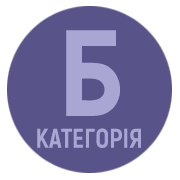REGULATING THE USE OF GENERATIVE AI BY HIGHER EDUCATION STUDENTS: UKRAINIAN AND EUROPEAN EXPERIENCE
DOI:
https://doi.org/10.32782/philspu/2025.11.29Keywords:
generative artificial intelligence, policy, higher education institutions, students, permissions, prohibitions, responsibilityAbstract
The article analyses the policies regulating the use of generative artificial intelligence (AI) by higher education students in Ukrainian and European universities. In the context of the rapid integration of AI into educational processes, the article focuses on the permissions, prohibitions, and responsibilities defined in the relevant institutional regulations. Special attention is given to how generative artificial intelligence may be used by students in the learning process, the risks identified in institutional policies, and the measures envisaged in cases of non-compliance. A comparative analysis of policies adopted by leading universities reveals both common and distinctive features in the regulation of AI use. Common features include the unconditional prioritisation of academic integrity, recognition of the need for transparency in AI use, holding students accountable for AI application, and viewing AI as a supportive rather than a substitutive tool in learning. Issues such as data privacy, copyright, and potential bias are also recurring themes across most policies. Key differences include the degree of detail in disciplinary measures, the varying level of institutional support for AI services, and differing approaches to formulating prohibitions. While Ukrainian policies tend to set out sanctions more explicitly, European institutions usually rely on pre-existing academic integrity provisions. The authors emphasise the importance of balancing policy flexibility with the need for clear regulation of student–AI interaction and highlight the necessity of regularly reviewing and updating such policies. Most of the analysed policies focus not on reactive control but on proactive strategies that facilitate the shift from mere control to the strategic integration of AI as a transformative educational asset. This strategic shift is crucial for universities seeking to remain competitive in an AI-driven world.
References
Рекомендації щодо відповідального впровадження та використання технологій штучного інтелекту в закладах вищої освіти. 2025. 56 с. Офіційний вебсайт Міністерства освіти і науки України. URL: https://mon.gov.ua/static-objects/mon/sites/1/news/2025/04/24/shi-v-zakladakh-vyshchoi-osvity-24-04-2025.pdf
Щедріна М., Драч І. Рекомендації закладам вищої освіти щодо впровадження штучного інтелекту в освітній процес. Науковий вісник Вінницької академії безперервної освіти. Серія «Педагогіка. Психологія». Вінниця: Кому- нальний заклад вищої освіти «Вінницька академія безперервної освіти», 2024. Вип. 5. С. 203–214.
Драч І., Петроє О., Бородієнко О., Регейло І., Базелюк О., Базелюк Н., Слободянюк О. Використання штучного інтелекту у вищій освіті. International Scientific Journal of Universities and Leadership. 2023. Вип. 15. С. 66–82.
Котун К. Політика безпечного застосування штучного інтелекту в університетах Скандинавських країн // Кібербезпека в транскордонному співробітництві. Міжнародна науково-практична конференція Берегове, 15–16 жовтня 2024 р. : тези доп. Берегове, Закарпатський угорський інститут імені Ференца Ракоці II, 2024. С. 146–147.
Policy framework and guidelines on GenAI in education. University of Amsterdam. 17 p. Офіційний вебсайт Університету Амстердама. URL: https://www.uva.nl/binaries/content/assets/uva/nl/over-de-uva/over-de-uva/beleid-en-financien/onderwijs/beleidskader_genai_eng_040625.pdf
Informe y Recomendaciones sobre el Uso de IA Generativa. Universidad Complutense de Madrid, 2023. 21 p. Офіційний вебсайт Мадридського університету Комплутенсе. URL: https://ssii.ucm.es/file/informe-general-ia-generativa-uc
TUM KI Strategie. München, 2024. 31 S. Офіційний вебсайт Технічного університету Мюнхена URL: https://mediatum.ub.tum.de/doc/1766631/1766631.pdf
AI in studies and teaching. Universität Wien. Офіційний вебсайт Віденського університету. URL: https://studieren.univie.ac.at/en/studying-exams/ai-in-studies-and-teaching/
Use of generative AI tools to support learning. University of Oxford. Офіційний вебсайт Оксфордського університету. URL: https://www.ox.ac.uk/students/academic/guidance/skills/ai-study
Generative AI in Teaching and Learning. ETH Zürich. Офіційний вебсайт Швейцарської вищої технічної школи Цюриха. URL: https://ethz.ch/en/the-eth-zurich/education/ai-in-education.html
Політика використання штучного інтелекту для академічної діяльності в КПІ ім. Ігоря Сікорського. Киів, 2023. 23 с. Офіційний вебсайт КПІ ім. Ігоря Сікорського. URL: https://osvita.kpi.ua/sites/default/files/downloads/polityka-vykorystannia-shtuchnogo-intelektu_2023.pdf
Політика використання штучного інтелекту в Дніпровському національному університеті імені Олеся Гончара. Дніпро, 2025. 12 с. Офіційний вебсайт ДНУ ім. Олеся Гончара. URL: https://www.dnu.dp.ua/docs/osvitnya/N106_14_04_25_Polityka_Shtuchnyi_intelekt.pdf
Політика використання штучного інтелекту в академічній діяльності ХНЕУ ім. С. Кузнеця. Харків, 2025. 6 с. Офіційний вебсайт ХНЕУ ім. С. Кузнеця. URL: https://hneu.edu.ua/content/documents/158/15768/Attaches/politika-vikoristannya-shi-v-hneu.pdf
Співаковський О. та ін. Загальні політики використання штучного інтелекту в навчанні, викладанні й дослідженнях у Херсонському державному університеті. Івано-Франківськ, 2023. 18 с. Офіційний вебсайт ХДУ. URL: https://www.kspu.edu/FileDownload.ashx?id=00653012-555c-46b2-bb64-05ba9bf26773
Стратегія використання штучного інтелекту в Національному аерокосмічному університеті «Харківський авіаційний інститут». Харків, 2025. 21 с. Офіційний вебсайт ХАІ. URL: https://khai.edu/assets/files/polozhennya/strategiya-shi-s.pdf








